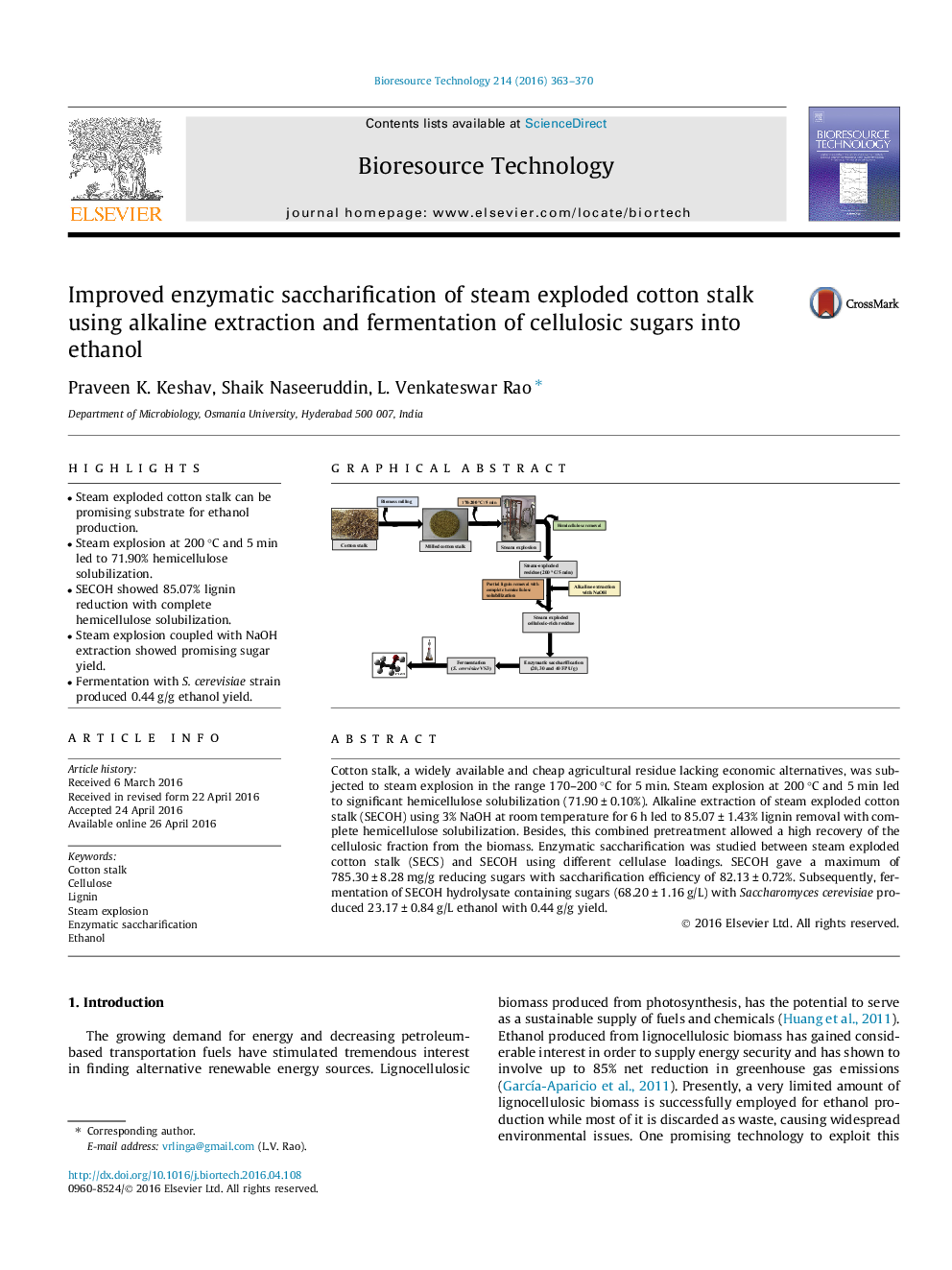| Article ID | Journal | Published Year | Pages | File Type |
|---|---|---|---|---|
| 679075 | Bioresource Technology | 2016 | 8 Pages |
•Steam exploded cotton stalk can be promising substrate for ethanol production.•Steam explosion at 200 °C and 5 min led to 71.90% hemicellulose solubilization.•SECOH showed 85.07% lignin reduction with complete hemicellulose solubilization.•Steam explosion coupled with NaOH extraction showed promising sugar yield.•Fermentation with S. cerevisiae strain produced 0.44 g/g ethanol yield.
Cotton stalk, a widely available and cheap agricultural residue lacking economic alternatives, was subjected to steam explosion in the range 170–200 °C for 5 min. Steam explosion at 200 °C and 5 min led to significant hemicellulose solubilization (71.90 ± 0.10%). Alkaline extraction of steam exploded cotton stalk (SECOH) using 3% NaOH at room temperature for 6 h led to 85.07 ± 1.43% lignin removal with complete hemicellulose solubilization. Besides, this combined pretreatment allowed a high recovery of the cellulosic fraction from the biomass. Enzymatic saccharification was studied between steam exploded cotton stalk (SECS) and SECOH using different cellulase loadings. SECOH gave a maximum of 785.30 ± 8.28 mg/g reducing sugars with saccharification efficiency of 82.13 ± 0.72%. Subsequently, fermentation of SECOH hydrolysate containing sugars (68.20 ± 1.16 g/L) with Saccharomyces cerevisiae produced 23.17 ± 0.84 g/L ethanol with 0.44 g/g yield.
Graphical abstractFigure optionsDownload full-size imageDownload as PowerPoint slide
